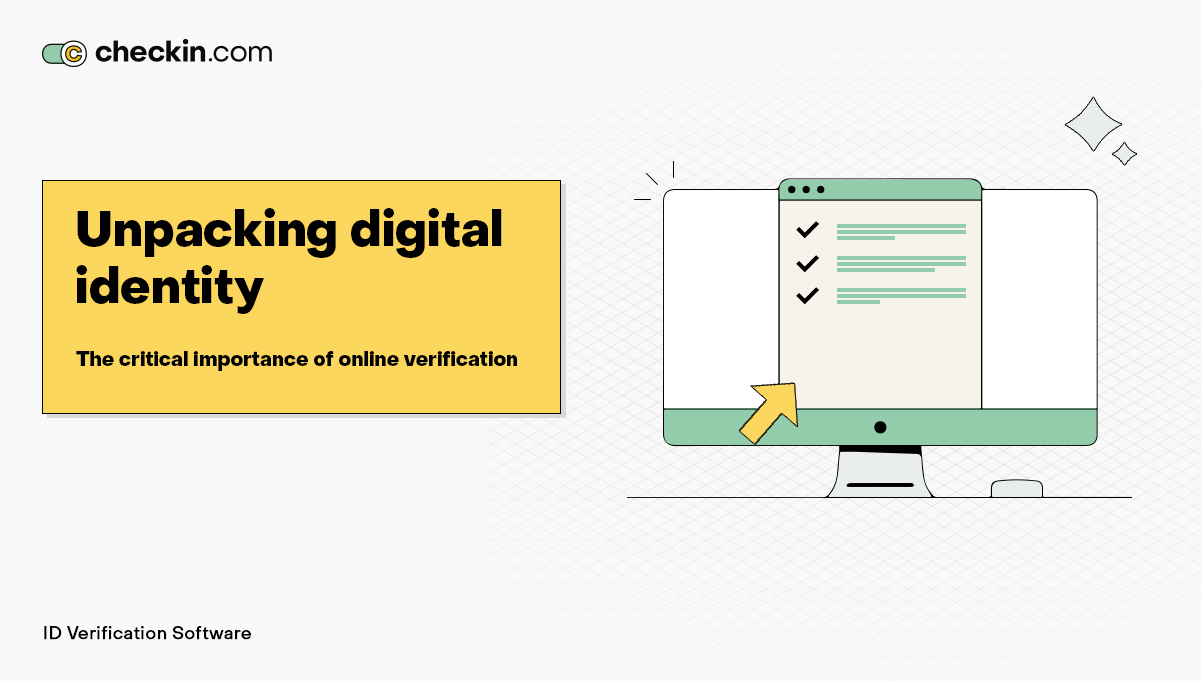
Unpacking Digital Identity: The Critical Importance of Online Verification
1 Jun 2023
As we increasingly immerse ourselves in digital platforms and conduct transactions online, the significance of ‘digital identity’ is rising rapidly. Your digital identity, much like your physical identity, is a unique representation of yourself within the online world. Every post, every purchase, every interaction adds another facet to your online persona.
Here’s the intriguing part: this digital footprint has a considerable impact on our real-world lives.
Consequently, with the progressive digitisation of our lives, the pressing issue becomes the verification of these online identities. Picture trying to find a single book in a gargantuan library – that’s the complexity we face with digital identity verification.
Breakdown of Digital Identity Verification
Let’s take a moment to understand what digital id verification service is. In its simplest form, it’s a method to confirm that the person you’re dealing with online is indeed who they profess to be. It’s like checking someone’s ID at a club, but in the digital sphere.
The significance of this process is undeniable given that with the conveniences of the digital world come increased risks such as identity theft, fraud, and data breaches. Trust is a reciprocal relationship, and it’s not just about businesses protecting themselves – it’s equally about ensuring customer safety and peace of mind.
Just as we verify physical identities with passports or driver’s licenses, digital identities are validated through:
- Email addresses
- Social media profiles
- Biometric data
These biometric markers, such as fingerprints and facial recognition, are increasingly vital in ensuring security in our online interactions.
The Hurdles and Prospects of Digital Identity Verification
Although digital identity verification is essential, it’s not without challenges. The issues of accuracy and privacy are paramount. How can the provided data’s accuracy be guaranteed? How can we ensure the security of sensitive data?
Yet, each challenge also presents opportunities, and innovators are quick to seize them. Advanced technologies are enhancing the process of digital identity verification:
- Artificial intelligence algorithms improve accuracy
- Blockchain technology ensures data security
- Biometric advancements facilitate efficient identity checks
Biometric verification isn’t a futuristic idea – it’s here, and it’s revolutionising how we secure our devices and applications.
The Role of Digital Identity Verification
As we gaze into the future, digital identity verification is poised to become even more central to our lives. It’s plausible to imagine a time when physical identification documents are superseded by digital counterparts.
Envision a world where:
- Your face or fingerprint provides access to services
- Payments are authorised with a simple biometric check
- International travel requires only a digital verification
This isn’t just a distant dream but an achievable reality that we’re progressing towards, with digital identity verification spearheading this transformation.
Wrapping Up
In conclusion, as the lines between our digital and physical identities continue to blur, the importance of digital identity verification is becoming increasingly evident. It is critical for businesses and individuals alike to authenticate these identities accurately and securely.
Despite the hurdles, technological advancements are progressively bringing us closer to a future where digital identity verification is seamless, safe, and an integral part of our digital existence.
Understanding and embracing digital identity verification isn’t merely an option but a necessity in our evolving digital landscape. Who we are in the digital space is becoming more and more pertinent to our everyday lives.
FAQ
What is digital identity verification?
Digital identity verification is the process of confirming that a person online is who they claim to be. It’s akin to checking a physical ID, but for the digital world.
Why is digital identity verification important?
With increased online interactions, the risk of identity theft and fraud has risen. Digital identity verification is vital to protect businesses and ensure customer safety and trust.
What methods are used in digital identity verification?
Various methods are used, including checking email addresses, social media profiles, and biometric data like fingerprints and facial recognition.
What challenges does digital identity verification face?
Key challenges include ensuring the accuracy of data provided and maintaining the security of sensitive data.
What does the future hold for digital identity verification?
With advancements in technology, digital identity verification will become even more integral to our lives. It’s plausible that digital identities will replace physical identification documents in the future.